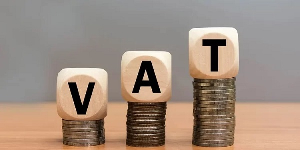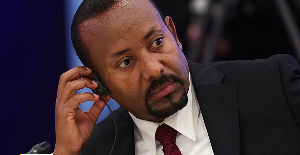General News of Wednesday, 26 August 2009
Source: GNA
Malaria is a great economic burden to governments
Wa, (U/W), Aug. 26, GNA - The United Nations Children's Fund (UNICEF), says malaria is a great economic burden and urged governments to concentrate on cleaning the environment to reduce the breeding of mosquitoes.
There is still no known technology of removing the malaria parasites from mosquitoes and so governments must adopt appropriate measures to prevent children and pregnant women from mosquito bites, Dr. Yasmin Ali Haque, UNICEF's Country Representative has cautioned. Dr Haque said this when she paid a courtesy call on the Upper West Regional Minister, Mr Mahmud Khalid at his office on Wednesday. She is in the region to hold discussions with the Upper West Regional Health Directorate on key findings of the High Impact Rapid Delivery (HIRD) Supplementary Survey of 2007.
Dr Hague said UNICEF was worried about the high mortality rate among children below five years, malaria management, inadequate use of iodised salt and poor sanitation management in the region. She however commended the health directorate for the good performance in the immunization of children, even though it faced the challenge of reaching out to some of the remote communities. Dr Hague also called on the law enforcement agencies and the district assemblies to help the environmental health officers to measure iodine content in salt at market places.
On the provision of potable water, Dr Hague acknowledged that it was a huge challenge in the Upper West, Upper East and Northern Regions and urged the people to adopt alternative ways of conserving water. "We must respect water and its usage and we must also learn to live with it," she advised.
Dr Hague said provision of quality education for children must not be gambled with and appealed to district assemblies to help motivate teachers and monitor them to provide quality education to children. "Children must learn agriculture, especially shea-butter production and other things around their environment to find alternative ways of adding more value to them to benefit the national economy". Mr Khalid commended UNICEF for supporting the region by providing educational and health facilities and building the capacity of personnel in the health sector and district assemblies which had impacted positively on the lives of the people.
He said the Wa Municipality depended on 15 boreholes for the supply of potable water which was not the best.
As a result, he said some suburbs within the municipality were always faced with inadequate water problems and appealed to development partners to consider providing more boreholes for them. Mr Khalid appealed to UNICEF to help provide accommodation for teachers in rural schools to encourage them to stay and teach. He bemoaned the deplorable nature of major roads linking the Upper West to Upper East and Northern Regions and called for a holistic approach to development of roads in the north. 26 Aug. 09












